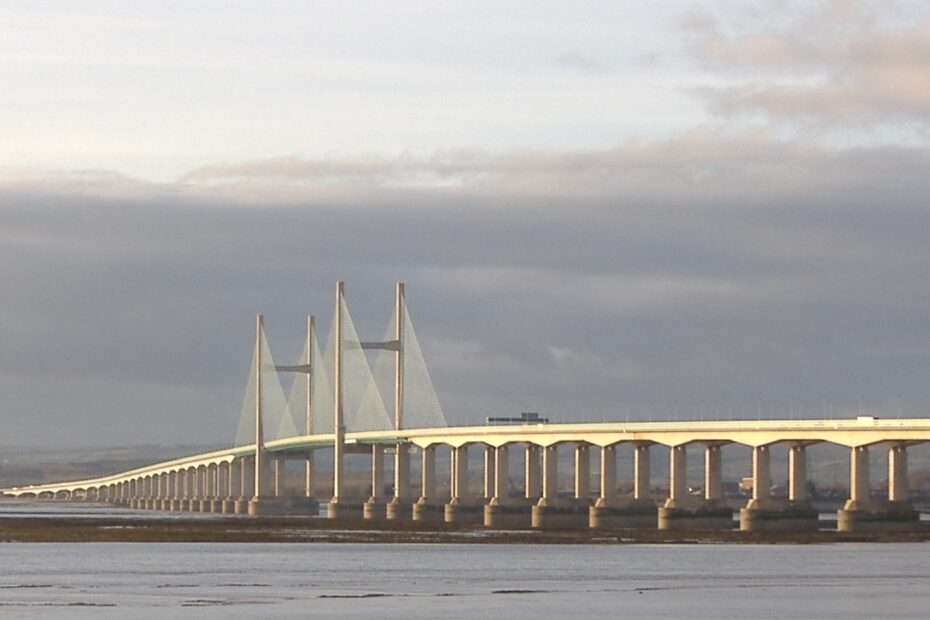In this post, we find Daniel Defoe on his travels in the Severn Estuary. He describes the power of the ‘violent’ tides, forcing him and his companions to keep to the road, rather than take the ferry. The last ferry closed in 1966, with two fine road bridges now spanning the turbulent tides at the mouth of the Severn.
As we turn north towards Gloucester, we lose the sight of the Avon, and in about two miles exchange it for an open view of the Severn Sea, which you see on the west side, and which is as broad as the ocean there; except, that you see two small islands in it, and that looking N.W. you see plainly the coast of South Wales; and particularly a little nearer hand, the shore of Monmouthshire. Then as you go on, the shores begin to draw towards one another, and the coasts to lye parallel; so that the Severn appears to be a plain river, or an æstuarium , somewhat like the Humber, or as the Thames is at the Nore, being 4 to 5 and 6 miles over; and to give it no more than its just due, a most raging, turbulent, furious place.
This is occasion’d by those violent tides call’d the Bore, which flow here sometimes six or seven foot at once, rolling forward like a mighty wave: So that the stern of a vessel shall on a sudden be lifted up six or seven foot upon the water, when the head of it is fast a ground. After coasting the shore about 4 miles farther, the road being by the low salt marshes, kept at a distance from the river: We came to the ferry call’d Ast Ferry, or more properly Aust Ferry, or Aust Passage, from a little dirty village call’d Aust; near which you come to take boat.
This ferry lands you at Beachly in Monmouthshire, so that on the out-side ’tis call’d Aust Passage, and on the other side, ’tis call’d Beachly-Passage. From whence you go by land two little miles to Chepstow, a large port town on the river Wye. But of that part I shall say more in its place. When we came to Aust, the hither side of the Passage, the sea was so broad, the fame of the Bore of the tide so formidable, the wind also made the water so rough, and which was worse, the boats to carry over both man and horse appear’d (as I have said above) so very mean, that in short none of us car’d to venture: So we came back, and resolv’d to keep on the road to Gloucester. By the way we visited some friends at a market-town, a little out of the road, call’d Chipping-Sodbury, a place of note for nothing that I saw, but the greatest cheese market in all that part of England; or, perhaps, any other, except Atherstone, in Warwickshire.
Daniel Defoe, A tour thro’ the whole island of Great Britain, divided into circuits or journies Letter 6 part 2: Oxford, Bristol and Gloucester, 1727 (London: JM Dent and Co, 1927)
